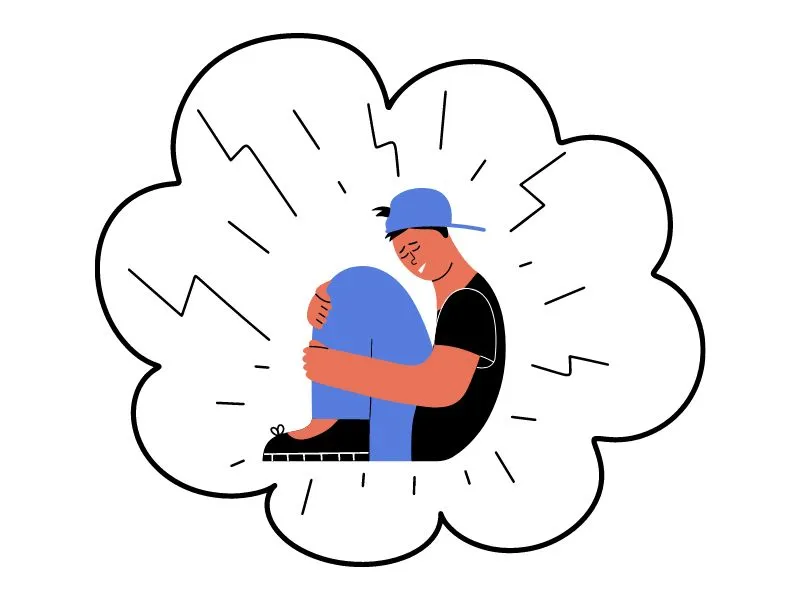A panic attack is an abrupt, unexpected bout of extreme fear or discomfort. There may be symptoms including a racing heartbeat, shortness of breath, sweating, shaking, chest discomfort, disorientation, and a sense of impending doom. It might seem overpowering. People may also fear losing control or going mad when having a panic attack. These episodes can last between a few minutes and an hour and can be stressful. Although panic attacks are rarely life-threatening, it's vital to remember that they may still be terrifying and have a significant impact on a person's everyday life.
Having a set of readily available tips to manage panic attacks is vital for effective coping and support:
- Remind yourself that panic attacks are temporary and will pass. Acknowledge that it is a concentrated period of anxiety that will diminish over time.
- Practice deep breathing techniques to help regain control during a panic attack. Slow, deep breaths can alleviate rapid breathing and promote relaxation. Techniques like 4-7-8 breathing or focusing on enjoyable activities can also be helpful.
- Use calming scents such as lavender to promote relaxation and create a sense of grounding during panic attacks. Explore other essential oils like bergamot orange, chamomile, or lemon if lavender is not preferred.
- Find a peaceful environment to minimize external stimuli and aid in focusing on coping strategies. Removing oneself from crowded or overwhelming spaces can create mental space and make it easier to practice calming techniques.
- Focus on a specific object during panic attacks. Concentrating on its details and properties can help divert attention from distressing thoughts.
- Practice the 5-4-3-2-1 method as a grounding technique during panic attacks. Engage your senses by observing and describing five objects, four sounds, three textures, two smells, and one taste in your surroundings.
- Repeat a mantra or positive affirmation to yourself during panic attacks. Simple phrases like "This too shall pass" can provide reassurance and help redirect focus away from anxiety.
- Engage in light exercise or go for a walk and regulate your breathing. Exercise can have long-term benefits by reducing anxiety and the frequency of panic attacks.
- Visualize your happy place or a calming environment to create a sense of relaxation and safety during panic attacks. Imagine the sights, sounds, and sensations of this place to foster a sense of calm.
- Take prescribed medications as directed by a healthcare professional if recommended for managing panic attacks.
- Inform a trusted person about your panic attacks if they frequently occur in specific environments. Support and understanding from others can provide comfort and assistance during future episodes.
- Identify and learn your triggers for panic attacks to manage or avoid them when possible. Recognizing and addressing triggers can help reduce the frequency and intensity of panic attacks.
Conclusion
At Solh Wellness, we offer a range of self-help tools and access to experienced professionals who can assist you in effectively dealing with and managing panic attacks. Our platform provides various resources and expert guidance to support your journey towards better mental well-being. We understand the challenges of panic attacks and are dedicated to providing the necessary tools and expert assistance to help you navigate them successfully.



